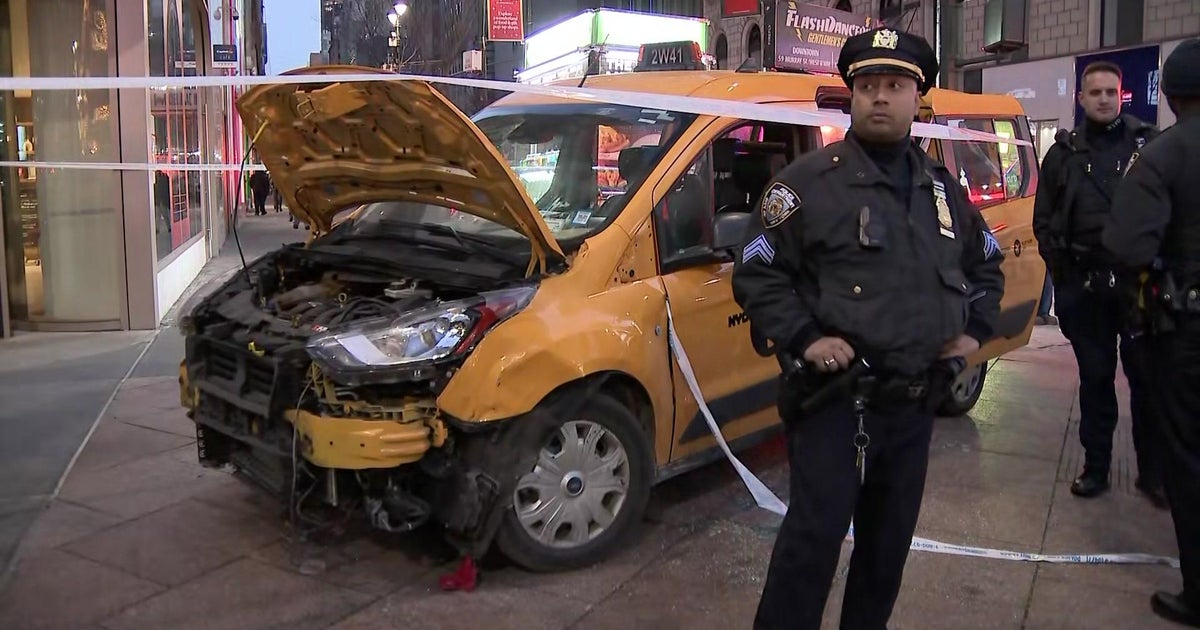Israeli union goes on strike as Netanyahu faces rage over Hamas killing of hostages without cease-fire deal
There were widespread disruptions across Israel on Monday as members of the country's largest labor union went on strike to pressure Israeli Prime Minister Benjamin Netanyahu to agree to a deal to bring home the remaining hostages held by Hamas in Gaza.
The leader of the Histadrut union, which has hundreds of thousands of members in Israel, called for the strike on Sunday after news broke of the recovery of the bodies of six hostages who had previously been known to be alive, including Israeli-American Hersh Goldberg-Polin.
The Israel Defense Forces said all six were killed a short time before their bodies were found by Israeli troops inside a tunnel in Gaza.
"My message to Prime Minister Netanyahu is that my brother Keith and all the remaining hostages need to be home immediately," Israeli-American Lee Seigel, whose brother Keith is among the roughly 75 hostages still believed to be held alive in Gaza, told CBS News at a protest on Sunday that drew hundreds of thousands of Israelis onto the streets.
Seigel said a deal was needed immediately for "those who are alive, to start rebuilding, as the country needs to rebuild, and those who are deceased, for a proper burial. Eleven months, almost 11 months of war is too much, too long," he said.
While many private sector businesses were open as usual on Monday, municipal services as well as services at Israel's main air transport hub, Ben Gurion Airport, were at least partially disrupted. Banks were closed and hospitals were only partially operating, the Reuters news agency reported.
Israel's labor court ruled that the general strike would need to end by 2:30 p.m. local time on Monday, and the ruling was accepted by the union.
The nationwide strike came after months of regular protests led by the families of the hostages over Netanyahu's handling of negotiations aimed at securing a cease-fire and hostage release agreement.
As negotiations have taken place between Israel and Hamas through mediators including Qatar, Egypt and the United States, one of the biggest recent sticking points has been whether Israel would agree to pull back its troops from the border area between Gaza and Egypt known as the Philadelphi Corridor after any deal.
"The country needs quiet. The region needs quiet," Seigel told CBS News. "Politics are driving the speech, the [cease-fire] non-negotiations negotiations, and are driving an extreme government in attempts to hold on to their power."
Seigel said the killing of the six additional hostages meant President Biden should rethink the way the U.S. supports the Israeli government.
The war "serves political interests that do not jibe with the needs of our country, nor the region, nor Gaza," Seigel said. "President Biden… we know you will not give up. But not giving up at this point means doing whatever is necessary. The United States can leverage many different interests, issues within Israel, within the region… They need to make some very, very hard decisions now that we have crossed a red line, where everything is available in the arsenal of the United States government to bring a cease-fire, to bring quiet and return hostages."
Mr. Biden met in the Situation Room Monday with the U.S. hostage deal negotiating team after the murders of Goldberg-Polin and five others.
Asked by reporters Monday if he thinks Netanyahu is doing enough to secure the return of the hostages, the U.S. president responded, "No."
The six hostages whose bodies were recovered were Hersh Goldberg-Polin, Carmel Gat, Eden Yerushalmi, Alexander Lobanov, Almog Sarusi, and Master Sgt. Ori Danino. The Israeli Ministry of Health said that autopsies showed they had each been shot at close range on Thursday or Friday.
"Finally you are free!"
Hersh Goldberg-Polin's family became two of the most high-profile relatives of hostages on the international stage. During their desperate fight to free their son, they met with Mr. Biden, Pope Francis and others. They also addressed the United Nations and the Democratic National Convention, urging the release of all hostages.
On Monday, thousands of people thronged a Jerusalem cemetery to pay their respects.
His mother Rachel said it had been a period of "torment" and "such a specific type of misery" that she had never before experienced."
Many in the crowd erupted in sobs she said goodbye to her son and told him, "Finally, finally, finally you are free!"
"I will love you and I will miss you every single day for the rest of my life but you're right here," she said, pointing to her heart. "I know you're right here. I just have to teach myself how to feel you in a different way. And Hersh, there's one last thing I need you to do for us. Now I need you to help us stay strong and I need you to help us survive."
His father said they hoped his death might at least be a turning point in drawn-out negotiations for a cease-fire and hostage release
"We failed you, we all failed you. You would not have failed you," Jon Goldberg-Polin said. "Maybe your death is the stone, the fuel, that will bring home the 101 other hostages."
"Sorry Hersh, sorry we couldn't bring you back alive," Israel's President Isaac Herzog said in a eulogy.
President Biden, who spoke to the Goldberg-Polin family, said he was "devastated and outraged" by their son's killing.
"Hersh was among the innocents brutally attacked while attending a music festival for peace in Israel on October 7. He lost his arm helping friends and strangers during Hamas' savage massacre," Mr. Biden said.
Netanyahu blamed Hamas for the stalled cease-fire negotiations, saying "Whoever murders hostages doesn't want a deal."
Hamas on Monday released a video showing the six hostages before they died and said a longer video would be released in the coming hours.







